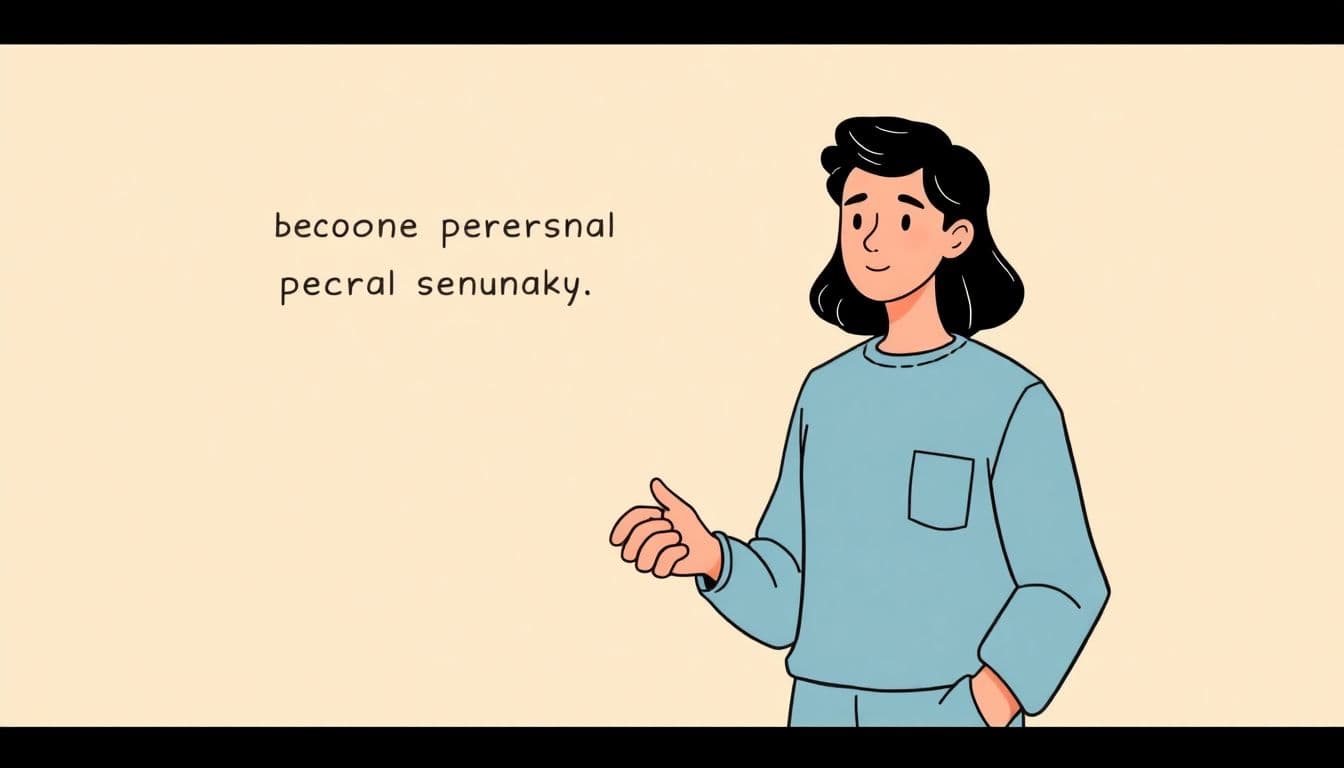Table of Contents
Struggling to find beta readers for your book? You're not alone—many writers face this challenge, feeling stuck or unsure where to look. But don't worry, if you keep reading, I’ll share simple steps to connect with the right people who can give you honest feedback.
In this guide, you'll discover easy ways to find beta readers online, how to choose between free and paid options, and tips for working smoothly with them. You'll be well on your way to getting helpful insights that can make your story even better!
Key Takeaways
Key Takeaways
- Find beta readers by joining online writing communities like Goodreads groups, Reddit (r/BetaReaders), and Facebook genre-specific groups. Look for engaged members who enjoy your genre and are willing to give honest feedback.
- Use platforms like Scribophile, Reedsy, or Spire Beta Matching to find dedicated, experienced beta readers. Free options are good for initial feedback, while paid services offer detailed and professional insights.
- Reach out on social media and writing forums, connecting with fellow writers or readers interested in exchanging feedback. Participate in writing contests and critique groups for more opportunities.
- Choose your beta readers carefully: focus on those interested in your genre, and evaluate their feedback style by sharing sample chapters beforehand. Avoid relying solely on friends or family unless they are experienced.
- Be clear about the type of feedback you want, set realistic deadlines, and ask targeted questions. Be open to criticism and ready to revise your work based on honest input.

How to Find Beta Readers: A Simple Step-by-Step Guide
Getting honest and helpful feedback on your writing can feel like finding a needle in a haystack. The secret is knowing where to look and how to attract the right people. So, let’s break it down into straightforward steps on how to find beta readers who can truly help improve your work.
1. Understand What a Beta Reader Is
Define the role of a beta reader
A beta reader is someone who reads your manuscript before you publish it, offering feedback on elements like story, characters, pacing, and clarity. They’re like helpful friends who are willing to tell you what works and what needs fixing, without holding back.
Why beta readers are important for your writing
Good feedback from beta readers helps you see your story through fresh eyes, catch plot holes, improve character development, and make your writing stronger. While friends or family might be eager to help, selecting eager, honest, genre-specific readers ensures you get the insights you need to refine your book.
2. Use Online Writing Communities to Find Beta Readers
Join Goodreads beta reader groups
Platforms like Goodreads host countless groups where authors and readers connect. By joining these communities, you can post about your book and invite members interested in your genre to become beta readers. Look for active groups with engaged members who enjoy offering detailed feedback.
Participate in Reddit beta reader communities (e.g., r/BetaReaders)
Reddit’s r/BetaReaders is a lively space where writers seek feedback and swap manuscripts. Posting a clear request explaining your genre, word count, and what kind of feedback you're after can attract readers who are passionate about giving honest critiques. Just remember to follow each community’s rules!
Search Facebook groups dedicated to beta reading by genre or author type
Facebook is home to numerous specialized groups. Search for groups like "Romance Writers & Beta Readers" or "Sci-Fi Beta Readers." Joining these groups and posting your request, along with some sample pages, can help you find passionate readers who love your genre and want to help you improve.
3. Find Beta Readers on Specialized Writing Sites
Scribophile: Join for feedback and exchange games
Scribophile is a platform where writers exchange critiques. You can post your chapters and critique others’ work in return, forming a community of dedicated readers eager to help each other grow. It’s a great way to find motivated beta readers who understand the craft.
Reedsy: Connect with professional beta readers (paid service)
If you’re open to investing in expert feedback, Reedsy offers access to professional beta readers. These readers are experienced in your genre, often providing detailed reports after reading your manuscript. Expect to pay a fee but gain in-depth insights that can elevate your book.
Spire Beta Matching: Use paid matching services for serious feedback
Spire offers a paid beta matching service tailored to your project’s specifics. They connect you with readers who align with your target audience, ensuring feedback is relevant and constructive. This route can save time and deliver quality input from enthusiastic, serious readers.
4. Reach Out on Social Media and Writing Forums
Post requests in writing groups on platforms like Twitter and Facebook
Social media is a quick way to find beta readers. Craft a friendly post explaining your project, your target genre, and what kind of feedback you’re after. Use hashtags like #betareader or #writingcommunity to reach more writers and readers who love helping out.
Look for writers with nearly finished stories for mutual beta reading
Connect with fellow writers who are also polishing their drafts. Offer to swap chapters or read each other’s work. Mutual beta reading not only helps you improve but also builds camaraderie among indie authors.
Participate in writing contests, workshops, and critique groups
Engaging in contests and workshops exposes you to other writers eager for feedback. Many writing groups host critique sessions where you can share your work for valuable insights, sometimes leading to dedicated beta reading partnerships.
5. Decide Between Free and Paid Beta Readers
Free beta readers: Find them through writing communities and social networks
Most beta readers start as fellow writers or passionate readers willing to trade feedback without charge. This route is budget-friendly and allows you to gather multiple perspectives, but keep in mind that quality can vary.
Paid beta readers: Get professional feedback and quicker responses
Investing in paid beta services provides higher reliability and detailed reports often based on a tailored questionnaire. For example, professional services like how to become a beta reader or companies like Kevin Anderson & Associates ensure you get comprehensive insights rapidly.
Consider the differences in feedback quality and cost
While free beta readers are great for initial gauging, paid professionals provide more polished feedback, especially important as you prepare for publication. Balance your needs and budget before choosing your route.
6. Tips for Choosing the Right Beta Readers
Look for beta readers interested in your genre
Make sure your potential beta readers enjoy and read books in your genre. Their familiarity means more relevant feedback and a genuine understanding of what works well for your target audience.
Trade sample chapters to assess their feedback style
Send a couple of chapters or a sample to prospective beta readers. Their style of critique can reveal whether they provide constructive, specific feedback rather than vague comments.
Avoid friends and family unless they are experienced and honest
While family might love your story, they might also shy away from critical comments. Choose beta readers who are honest and familiar with genre conventions. Find someone who isn’t afraid to point out flaws!
Choose writers who can give honest and helpful insights
Look for beta readers who have written or critiqued regularly and can articulate their thoughts clearly. Their feedback should guide you to improve your craft, not just flatter your writing.
Finding top-notch beta readers is a key step in polishing your manuscript. The right people can turn a good story into a great one, so take your time selecting those who truly want to see your work succeed. Want to learn more about connecting with professional beta readers? Check out how to write a foreword or explore writing communities for additional tips and support.

7. How to Work Effectively with Beta Readers
Be clear about the feedback you want (story, characters, pace)
When approaching beta readers, specify exactly what kind of feedback you’re after—whether it’s about plot consistency, character development, pacing, or dialogue.
This helps them focus their critique and provides you with actionable insights rather than vague comments.
Set a timeline and respect their time
Give your beta readers a reasonable deadline to review your work—typically two to four weeks depending on the manuscript length—and follow up politely if needed.
Respect their schedule so they’re encouraged to give thoughtful feedback without feeling pressured.
Provide specific questions to guide their feedback
Instead of asking “What do you think?”, ask targeted questions like “Were there parts that bored you?” or “Did the ending feel satisfying?”
This leads to more constructive and useful comments to refine your story.
Be open to criticism and ready to revise your work
Remember, beta feedback isn’t about defending your story but about making it better.
Take notes, consider differing opinions, and be willing to make changes based on honest input.
8. Additional Resources to Find Beta Readers
Join writing groups like Helping Writers Become Authors or Critters Workshop
These communities can connect you with dedicated beta readers who are serious about giving helpful feedback.
Connect with writing communities such as Women’s Fiction Writers Association
Specialized groups offer tailored advice and often have members eager to swap manuscripts for critique.
Look for online podcasts and blogs that connect writers and beta readers
Podcasts on writing craft and blogs with critique tips can lead you to beta reader networks or platforms where you can find interested readers.
FAQs
A beta reader is a person who reviews your manuscript before publication. They provide feedback on story, characters, and clarity, helping you improve your work and catch issues you might have missed.
You can join writing groups on platforms like Goodreads, Reddit, or Facebook. Participating in writing communities or forums often leads to finding readers interested in providing feedback.
Free beta readers are usually fellow writers or enthusiastic readers providing feedback at no cost. Paid beta readers are professionals who offer detailed, quicker insights, often at a fee, ensuring more polished feedback.
Select beta readers who read your genre, review sample chapters to gauge their feedback style, and prefer honest opinions. Avoid friends or family unless they provide objective, useful insights.



